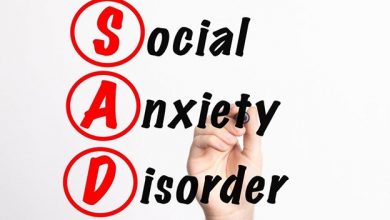The Science Of The Superstitious Beliefs
Scientific Facts about Superstitions

Science Behind the Superstitious Beliefs
While there is no universal concept for superstition, it is commonly understood to imply a belief in divine powers – such as destiny – as well as a need to control unknown causes and a need to overcome ambiguity.
Juan Plamen the writer of this article says: specific views and memories influence superstitions in this manner, which explains why they are sometimes unfounded and contradict empirical knowledge.
Psychologists who have looked at the origins of superstitions have discovered that they stem from the belief that there is a connection between two unrelated occurrences that happen at the same time.
For example, there’s a popular belief that charms bring good luck or shield you from bad luck.
Many people find that engaging in superstitious behaviors gives them a sense of control and decreases fear, which explains why superstition levels rise at periods of tension and anxiety.
This is especially true during economic downturns and periods of civil unrest, such as wars and conflicts. Indeed, between 1918 and 1940, measures of economic danger in Germany coincided closely with measures of superstition, according to researchers.
Touch Wood
It has been shown that superstitious practices will aid in the development of a healthy mental attitude. While they can lead to unreasonable decisions such as investing in the merits of good luck and destiny rather than logical decision-making, they can also lead to sensible decisions.
Superstition includes wearing charms, removing similar clothing, visiting locations associated with good fortune, choosing certain colors, and using specific numbers. And, while these behaviors and attitudes can seem insignificant to others, they may have a significant impact on real-world decisions.
- Superstitions can also lead to the belief that certain things and locations are cursed.
For example, Annabelle the Doll, who appeared in The Conjuring and two other films and is claimed to be possessed by the spirit of a deceased child.
The Curse of the Pharaohs, a more conventional example, is said to be cast on someone who disturbs the mummy of an Ancient Egyptian human, especially a pharaoh.
- Numbers are also associated with curses as well.
The number 666 on a license plate, for example, is sometimes used in tales of misfortune. The most well-known event included the number plate “ARK 666Y,” which was linked to unexplained car fires and “evil vibes” among travelers.
Sporting superstitions
Superstition is also common in sports, especially in high-pressure contexts. Prior to a win, four out of five professional athletes report participating in at least one superstitious conduct. Superstitions have been found to relieve anxiety and provide a feeling of control over uncontrollable, random variables in sports.
Superstitions habits vary by sport, but there are several commonalities.
Competitors of basketball, gymnastics, and sports, for example, said they prayed for results, checked their appearance in the mirror, and dressed appropriately to be more prepared, players and athletes are also involved in individualized acts and such behaviors.
Famous athletes are notorious for their superstitious tendencies. Michael Jordan, the basketball legend, famously hid his fortunate North Carolina shorts under his Chicago Bulls uniform. Björn Bork, a tennis legend, is said to have worn the same style of shirt while training for Wimbledon.
Rafael Nadal has a number of routines that he follows before each match. This includes the way he stores his water bottles and the fact that he takes ice-cold showers. These routines, according to Nadal, help him concentrate, flow, and perform well.
Walking under ladders
All of this demonstrates that superstitions can offer reassurance and help certain people cope with anxiety. Although this may be so, a study has found that superstitions-related behaviors may become self-reinforcing, in the sense that the behavior becomes a routine, and failure to follow the practice may result in anxiety.
…And if the final outcome of an event or circumstance is only determined by existing causes rather than unseen spiritual powers, this is still the case. This is in line with the oft-quoted adage that “the more you try (practice), the luckier you get.”
Check My Private Psychology Library: Best Digital Books for Psychology
Read More About Business Here > Psychology Blog
…
Would You Like To Be Able To Help, Heal, And To Change Your Life And The Life Of Many People By Learning New Skills?…
Below Are The Easiest And The Most Effective Ways To Make It Happen!
Other Important Resources
- Book: Improve Your Life Today Book
- Instagram: Personal / Eagle Beagle Spirit
- Visit Our Shop: Eagle Beagle Spirit Shop or Become An Ambassador
Always fighting for your rights and your daily improvement,
Juan Plamen




